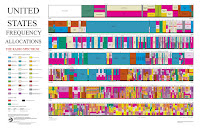In its April 2020 L-Band Order, the FCC voted 5-0 to approve Ligado Networks' use of 30 MHz of licensed spectrum for commercial wireless services, including 5G. The carefully tailored order included specific safeguards for GPS and for satellite communications services operating in adjacent spectrum bands. But a bill called the RETAIN GPS and Satellite Communications Act takes a slapdash approach to the intricate technical issues addressed by the L-Band Order.
Congress should reject the RETAIN Act and ensure that 30 MHz of valuable spectrum finally gets put to economically beneficial use. Putting L-Band spectrum into commercial use is especially important to further America's preeminence over China for 5G services.
But the RETAIN Act (S.2166) would thwart Ligado Networks' commendable efforts to bring next-generation commercial wireless network services to the L-Band. The bill, which was introduced by Sen. James Inhofe, would require Ligado to buy new equipment for any and all GPS and satellite communications providers and customers that are impacted by Ligado's operations within its licensed L-Band spectrum.
A major problem with the RETAIN Act is that it takes the kind of indiscriminate blanket approach to alleged spectrum interference issues that was rightly rejected by the FCC. In its L-Band Order, the Commission required Ligado Networks to replace government-owned GPS devices in the event that Ligado's network caused harmful signal interference issues with government users of adjacent spectrum. But the RETAIN Act's requirement that Ligado replace any and all GPS devices impacted by its network operations ignores the fact that some GPS devices receive signals using Ligado's licensed spectrum. As the FCC recognized in its L-Band Order, some GPS receivers apparently were designed to receive signals far outside of the spectrum allocation for GPS. The FCC sensibly concluded that protection shouldn't be extended to every GPS receiver operating far outside its allocation or to every poorly designed GPS receiver. However, the RETAIN ACT would quite unreasonably require Ligado to pay for and replace all such equipment. This would amount to giving third parties rights to use Ligado's licensed spectrum.
Additionally, the RETAIN ACT treats one-way GPS and two-way satellite communications the same even though they are distinct services operating in different bands that present different technical issues. Significantly, in the L-Band Order, the FCC concluded that Ligado's operations, subject to certain emissions limits, would not cause harmful interference to satellite communications operations in an adjacent band. Accordingly, the Commission did not pre-determine responsibility for any other such potential harmful signal interference issues, and it nowhere mandated that Ligado buy new equipment for its competitor, Iridium, should any future signal interference issue arise. But the RETAIN Act effectively would mandate this result.
In its L-Band Order, the FCC addressed potential harmful signal interference issues in a way that was fitted to concerns unique to each type of service and spectrum allocation. Yet the RETAIN Act lacks any such careful calibration. The bill seems intended to thwart new wireless services and effectively keep 30 MHz of valuable L-Band spectrum from ever being used. This result would cause a huge setback to America's 5G future and harm our nation's competitiveness against China. Congress should say "no" to the RETAIN Act and let Ligado Networks move forward with its next-gen wireless network, consistent with the safeguards established by the FCC.





